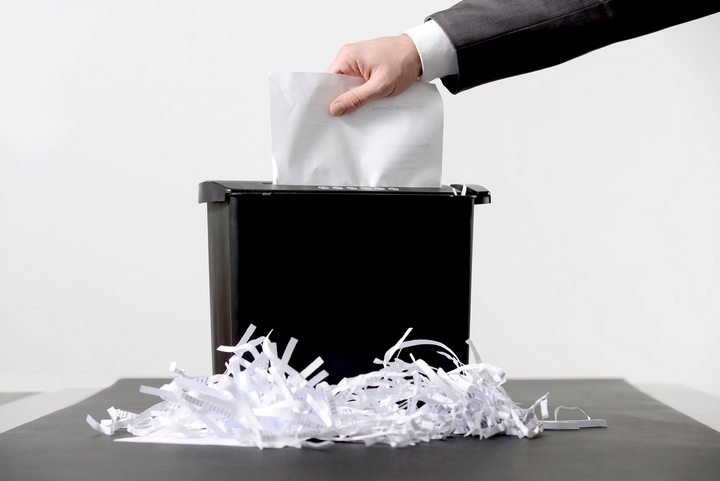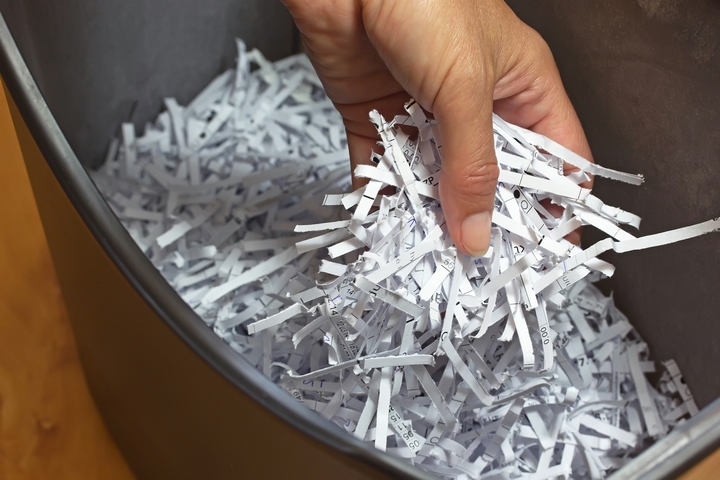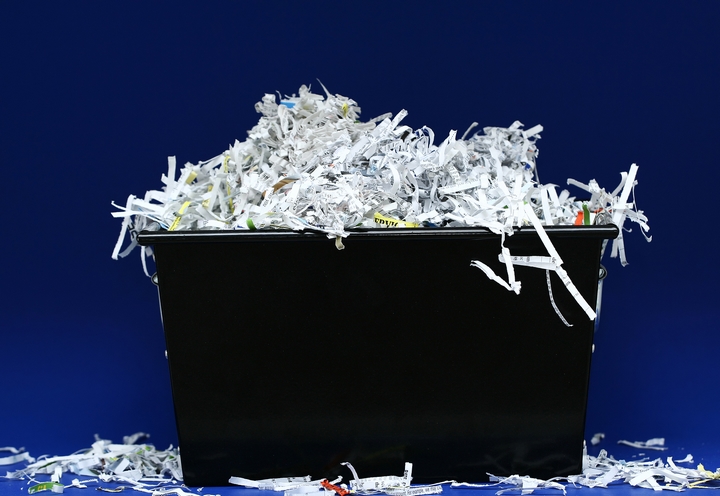We hear daily about data leaks, information being hacked and stolen, identity thefts, and many other ways that information gets taken by hackers that seem bent on destruction—almost for its own sake. The risk of cyber attacks has never been higher and global estimates for the cost of cyber infiltrators is estimated to be as high as $575 billion each year—and only rising.
Even something that seems as innocent as email can come under attack. In the last election, the email of John Podesta, who chaired Hilary Clinton’s run for US president, got hacked by Russian operatives bent on ensuring that she lost her run for office. Huge corporations are reporting thefts of customer information including credit card information. Companies hit include Walmart, Target, and eBay, among many other big name companies. And not just big companies are getting targeted.
Protecting private information is becoming an issue of growing importance. And it might just start in the office paper bin.
1. Managing paper disposal: the job of shredding services

Perhaps the first step in ensuring that your business information and any information that you collect in the process of conducting your business is to keep it private. That means disposing of it properly. The age of the breach is here, and information thieves will happily go through your company garbage if they think there’s data that can be collected and used, or sold for others to exploit.
Paper shredding services ensure that any paper garbage that leaves your property is properly disposed of so that its contents cannot be collected for any illegal purpose. It’s a lot harder than you might think to manage sensitive documents and ensure that no one sees them once they are disposed of.
2. How to manage paper shredding

Paper thieves will also go to great lengths to reconstruct shredded paper. So the size of the shredder is critical; in this case, smaller is better. That means the best businesses will have the paper shredded in to very small components, even pulverized, before being bundled and recycled. Services may also be offered either on site or at another facility.
Some shredding services only shred the paper and then pass on the recycling to another facility. Each step needs to be properly managed and monitored to ensure the integrity of the process and security of sensitive documents, even once they’re shredded.
3. Shredding in the office or hiring a service

Estimates are that a single employee generates up to 20,000 pieces of paper waste each year, even in this electronic age. That’s a lot of paper, and a lot of potentially sensitive information that needs to be protected and properly disposed of. Small, non-commercial shredders may not be enough to adequately shred the paper. Commercial shredders can even cost less, once personnel costs as well as hardware and maintenance costs are factored in to the mix.
4. Keep it shredded, keep it safe

In the end, a business has an obligation to keep personal and private data safe and secure. It is proving to be an increasingly daunting task. Starting with a good shredding system for paper-based waste is a good place to start.

